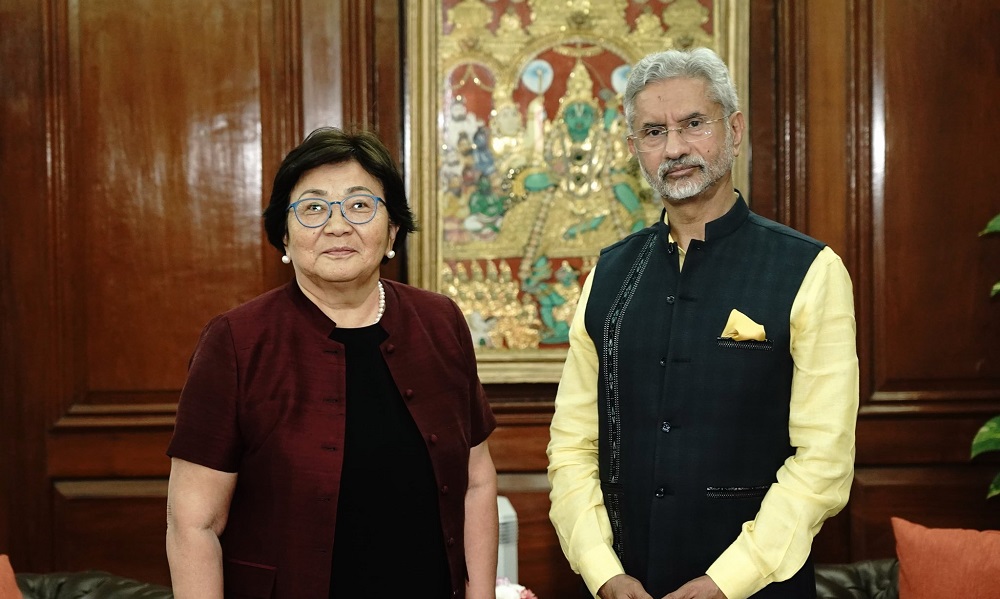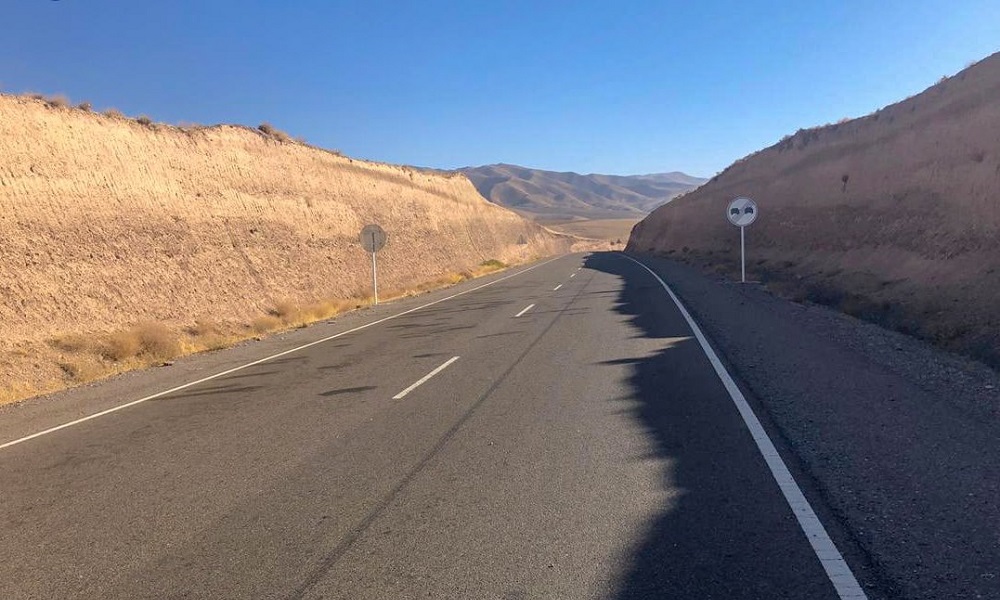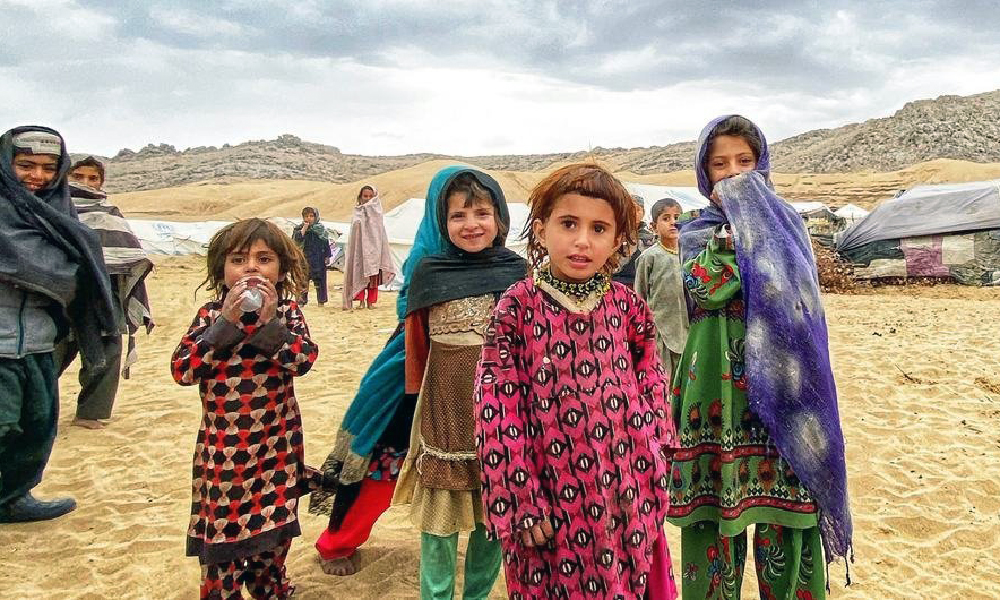Latest News
Afghanistan -Turkmenistan Tango

 Afghanistan is in the process of limiting Pakistan’s veto options on transportation of goods and looking at other routes being a landlocked country.
Afghanistan is in the process of limiting Pakistan’s veto options on transportation of goods and looking at other routes being a landlocked country.
Afghanistan’s President Ashraf Ghani visited Turkmenistan on July 3 upon invitation by President Gurbanguly Berdimuhamedov. Oguzkhan Palace complex in Turkmenistan hosted the high-level talks.
Various issues from security and counter-terrorism, economy and trade, energy, education and transportation infrastructure were discussed. Turkmenistan-Afghanistan-Pakistan-India (TAPI), Turkmenistan-Afghanistan-Pakistan (TAP)electricity project, and Turkmenistan-Uzbekistan-Tajikistan-Afghanistan-Pakistan (TUTAP) electricity transit project were discussed.
Transportation infrastructure cooperation is a way forward to make Afghanistan less dependent on Pakistan, who routinely closes checkpoints along the Durand line. President Ghani the next day told the visiting U.S. senate delegation that Afghanistan has diversified trade and transit links and is no longer dependent on Pakistan.
These are the main routes of transit to Afghanistan:
- Hairtan->Mazar e Sharif
- Mersin, Turkey-> Baku, Azerbaijan -> via ferry on Caspian Sea->Türkmenbaşy->Aqina->Sheberghan ->Mazar e Sharif
- Mersin, Turkey-> Baku, Azerbaijan -> via ferry on Caspian Sea->Türkmenbaşy-> Mary, Turkmenistan ->Torghundi->Herat-> Lashkargah ->Kandahar->Ghazni->Kabul
- Bandar Abbas ->Islam Qala->Herat-> Lashkargah ->Kandahar->Ghazni->Kabul
- Karachi->Quetta->Kandahar
- Karachi->Jalalabad->Kabul
Of these, the first route connects to China, the 2nd and 3rd to Europe, the 4th to Iran and the last two to Pakistan. As of now, the last two routes via Pakistan carry the most freight. When the Torkham gate was closed by Pakistan for an indefinite period following a skirmish between the respective armed forces, the other routes effectively neutralised any economic effect on Afghanistan.
Reconstruction and repairing of the Serhedabad (Azerbaijan)– Turghandi (Afghanistan) railroad and also expanding Aqina railroad were on the agenda of today’s meeting. The Asian transnational railway – Atamyrat-Ymamnzar-Akina was quoted as an example of the developing cooperation in the transport sphere between the two nations. In view of the transit and transportation potentials of the both countries, the presidents emphasized on Afghanistan-Turkmenistan-Azerbaijan-Georgia-Turkey trade and transit corridor and Tajikistan-Afghanistan-Turkmenistan railway. The trade and transit corridor is also known as the Lapis Lazuli corridor and the nations are due to sign an agreement for transporting goods to European markets. Turkmenistan itself serves as the fourth largest export market for Afghanistan.
Afghanistan has already diversified its trade and is no more heavily dependent on Pakistan. Trade volume between Pakistan and Afghanistan has declined from $3 billion a couple years ago to just $500 million in early 2017. That indicates a drop of more than an 80 percent in commerce between Afghanistan and Pakistan.
On the other hand, Afghan-Iran trade volume has increased 25 percent, from $1.5 billion to $2 billion, and now accounts for a quarter of Afghanistan’s total annual trade. The construction of railroad between Iran and Afghanistan and the Zaranj-Delaram Highway in Afghanistan are some factors behind the growth of Afghanistan – Iran trade. Trade with Europe and central Asia accounted for 24% of imports and exports stood at 11.6%.
Cooperation in oil & gas, chemical industry, textile, carpet weaving industry, farming and other sectors was discussed. An MoUs signed between the two nations is for cooperation In the carpet industry. It is worth noting that carpets are among the biggest exports from Afghanistan. Till now most carpets were produced to a pre-final stage and then exported to Pakistan or Iran. This was due to lack of resources like machinery for cutting and edging.
I spoke to the spokesperson of Afghan Chamber Of Commerce & Industries (ACCI) Siamuden Pasarly, who told me, “Till 2013-14, roughly around 80% of the carpets were exported to Pakistan, Iran & final processing done there. Now have our own factories. Industrial parks are under construction in PPP model. At present, 30% of the carpet go to Pakistan and Iran for final processing. We plan to absorb it and sell them under Afghan branding to the west.”
Implemented properly, the agreements at Turkmenistan would lead both to economic prosperity and reduced economic dependency on Pakistan for Afghanistan. It’s still a long way for land-locked Afghanistan to be no longer dependent on Pakistan but it’s a welcome start.
By Aveek Sen – Aveek Sen is an independent journalist working on cyber security and the geopolitics of India’s neighbourhood, focusing on Pakistan, Afghanistan, Iran and Bangladesh. He tweets at @aveeksen
—————–
* Responsibility for the information and views set out in this article lies entirely with the author, and it do not necessarily reflect the editorial policy of Ariana News.

Latest News
UN envoy meets Indian foreign minister to discuss Afghanistan

Roza Otunbayeva, the UN Secretary General’s Special Representative for Afghanistan, met with the Indian Foreign Minister Subrahmanyam Jaishankar in New Delhi and discussed issues related to Afghanistan, it was announced on Thursday.
During the meeting, Otunbayeva thanked India for “its critical humanitarian support and longstanding friendship for the Afghan people” and discussed the importance of regional and international cooperation to address prevailing challenges in Afghanistan, UNAMA said on X.
Jaishankar also said on X that the sides exchanged views on the current situation in Afghanistan.
“Underlined that India has provided wheat, medicines, pesticides and school supplies. Appreciate the role of UN agencies as partners in these endeavors,” he said.
Latest News
Traffic accident leaves one dead, four injured in Herat

Local officials in Herat say one person was killed and four others injured due to a traffic accident in Karukh district of the province.
The accident took place on Thursday night at 8:pm.
The injured individuals have been taken to Herat’s regional hospital by the personnel of Karukh district police headquarters, local officials said.
Latest News
250,000 Afghan children need homes, food, education after returning from Pakistan

In the wake of an announcement by Pakistan that it intends to start Phase Two of deportations of Afghans, Save the Children said Thursday that almost a quarter of a million Afghan children need proper homes, food, and access to education after returning from Pakistan in the past seven months.
In a statement issued by the organization, Save the Children said more than 520,000 Afghans have returned from Pakistan since September last year, after Pakistan said all undocumented foreigners must leave the country voluntarily or face deportation.
Nearly half of all the returnees are children.
A survey by Save the Children of families who have returned to Afghanistan – and the communities who are hosting them – found that nearly all (99%) do not have enough food for the next one to two months.
About three-quarters of returnees and families in host communities reduced portion sizes or restricted the food consumption of adults so small children could eat.
About 40% of returnees and host families surveyed had to borrow food or rely on friends and relatives for at least three days a week – with 13% of returnees and 9% of host families saying they had to get food from others every day.
Almost 8 million children in Afghanistan – or one in three – are facing crisis levels of hunger.
Nearly one in six families live in tents, according to the survey, with most returnees having little or no means to support themselves.
Only a third had managed to bring assets back with them from Pakistan.
Nearly half (47%) said there were no jobs available in Afghanistan, with 81% saying that they do not have any skills that could lead to employment.
Almost two thirds (65%) of children who have returned to Afghanistan have not been enrolled in school. The majority (85%) told Save the Children that they don’t have the necessary documents to register and enroll in school.
In Pakistan, more than two thirds of these children had been attending school.
Arshad Malik, Country Director for Save the Children in Afghanistan, said: “Families are returning to Afghanistan with virtually nothing. Most are relying on relatives or friends to support them – and these communities already have little to support themselves.
“The return of so many people is creating an additional strain on already overstretched resources. Children need support and stability. Many undocumented Afghan children were born in Pakistan – Afghanistan is not the place they call home,” he said.
He added that in addition to the returns from Pakistan, 600,000 Afghans arrived from Iran last year. Also, “families have been forced from their homes by multiple disasters, including the series of earthquakes in Herat and the ongoing drought. Afghanistan is also now home to the second largest number of internally displaced people in the world – or roughly 1 in 7 people,” Malik said.
According to him, Afghanistan not only needs urgent funding from international donors and governments – but also needs long term, community-based solutions to help all displaced Afghans rebuild their lives.
-

 Sport4 days ago
Sport4 days agoACL fever grows as fixtures finalized
-

 World4 days ago
World4 days agoUS will not take part in any Israeli retaliatory action against Iran
-

 Latest News4 days ago
Latest News4 days agoOver 50 people dead in traffic accidents over Eid
-

 Latest News4 days ago
Latest News4 days agoUS identifies Kabul airport suicide bomber
-

 Latest News4 days ago
Latest News4 days agoGood rains enable DABS to increase power production in Kabul
-

 Business4 days ago
Business4 days agoAfghanistan-Kazakhstan chamber of commerce opens in Herat
-

 World3 days ago
World3 days agoIsraeli military vows response to Iran attack as calls for restraint mount
-

 Latest News3 days ago
Latest News3 days agoPakistani police give Afghans in Balochistan one day to leave



























